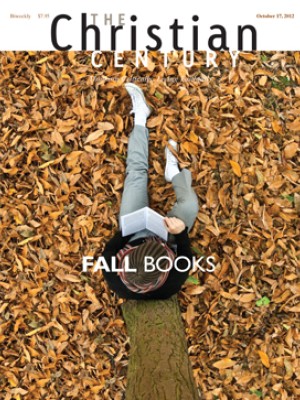U.S. Copts, Muslims decry film
Coptic Christian leaders in the United States distanced themselves from an anti-Muslim film that has sparked protests in more than 20 countries and denounced the Copts who reportedly produced and promoted the film.
“We reject any allegation that the Coptic Orthodox community has contributed to the production of this film,” the Coptic Orthodox Archdiocese of America said in a mid-September statement. “Indeed, the producers of this film have taken these unwise and offensive actions independently and should be held responsible for their own actions.”
Joseph Nassralla Abdelmasih, Nakoula Basseley Nakoula and Morris Sadek—Coptic Christians who live in the U.S.—have emerged as the producers and promoters of the anti-Muslim movie. Called The Innocence of Muslims, the crude film depicts Islam’s Prophet Muhammad as a bumbling sexual pervert. The movie’s trailer, posted on YouTube, sparked deadly demonstrations in Pakistan’s major cities as late as September 21.
Read our latest issue or browse back issues.
The protests began in Egypt on September 11 and spread to Yemen, Sudan, Tunisia, Bangladesh, Sudan, Qatar, Kuwait, Jerusalem and Iraq, according to international reports.
Four Americans, including Ambassador J. Christopher Stevens, were killed in Libya at the U.S. consulate in Benghazi on September 11. The White House had been blaming the film for inciting the attack in Libya until its investigation concluded by September 20 that the assault on the consulate was a terrorist attack—an assertion that Republicans had made repeatedly. Jay Carney, White House press secretary, said that some of the heavily armed men who stormed the consulate “may have had connections” to an offshoot of al-Qaeda active in East Syria.
The trio of Copts associated with the film include two who live in the Los Angeles area. Joseph Nassralla, as he is known, heads a Christian charity. Nakoula is a convicted felon. Sadek is an Islamophobic activist who lives near Washington.
Coptic leaders said they were investigating what ties—if any—the men have to mainstream Copts in the U.S. There are about 300,000 Copts in the United States, most of whom live in Los Angeles and the Northeast.
Coptic Christians in Egypt, whose heritage includes church father Clement of Alexandria and some of Christianity’s earliest monasteries, regularly face discrimination and violence at the hands of the Muslim majority.
Bishop Serapion of the Coptic Orthodox Diocese of Los Angeles, Southern California and Hawaii said he “strongly rejects dragging the respectable Copts of the Diaspora” into the controversy.
“The producers of this movie should be responsible for their actions,” said Serapion in a statement. “The name of our blessed parishioners should not be associated with the efforts of individuals who have ulterior motives.”
On September 18, the Egyptian government ordered the arrest of seven Egyptian-born Copts now living in the United States who allegedly were involved in the anti-Muslim film.
Meanwhile, some U.S. Muslim and Coptic church leaders attempted to show their respect for one another. “We call on members of both religions to lean on our faiths to counter the hate and the violence with good speech and positive work,” added the Egyptian-born Serapion.
The show of solidarity came almost a week after protesters in Egypt, where about 10 percent of the 90 million Egyptians are Coptic, attacked the U.S. embassy, setting off protests in other Muslim countries.
“These people are not Muslims or Copts,” said Salam Al-Marayati, who heads the Muslim Public Affairs Council, an advocacy group based in Los Angeles. He added: “We’ve known each other for many years. In the vast majority of our two communities, I don’t think there’s any animosity.”
“Both communities have been making a determined effort not to let this hate and violence set them back,” said Jim Zogby, president of the Washington-based Arab American Institute.
“There are extremists on both sides, and there’s a lot of building to be done,” Zogby said. “But all the progress that’s been made won’t be reversed by one provocateur in California or by a mob of angry, alienated young people spurred on by extremists in Cairo.” —RNS






